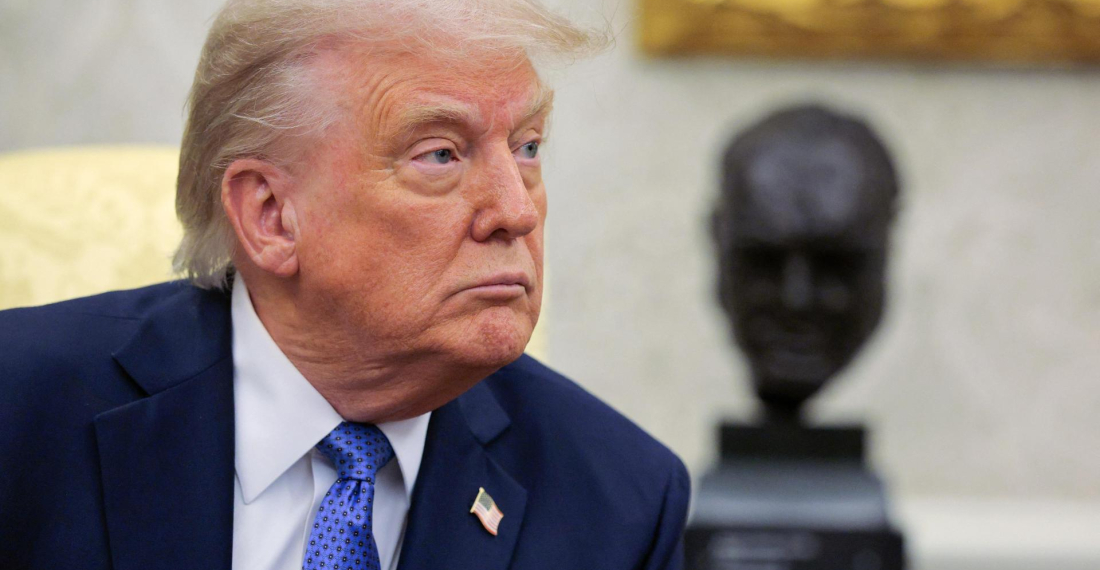Many of us have watched with incredulity as US President Donald Trump sailed through his first one hundred days in office. Domestically, the period has been characterised by the biggest shake-up of the American Government in history based on an old Trumpian maxim, that Washington was a “swamp”, and one suspects also a wish to settle scores with an establishment that in the past had not hesitated in challenging the Trumpian reading of America and the world. On the international level, Trump focused in his first hundred days on Ukraine and tariffs. Certainly, there were plenty of other statements to fill the world headlines: Greenland, Panama Canal, Canada becoming the US 51st state, and renaming the Gulf of Mexico, to name a few.
Ukraine
Before being elected Trump boasted that he would solve Ukraine in his first day in office. Now, more than a hundred days into the Trump presidency, the war rages on. We have all been shocked by the naivety, audacity and sheer arrogance of Trump and his administration as they engaged with the Ukraine issue, leaving Putin snug and happy, and the Ukrainians hurt and disappointed. Many dismiss Trump as a fool, but a fool does not become President of the United States twice, nor does he win splendidly in an election where most of the odds were stacked against him.
Tariffs
Apart from Ukraine, the other thing that was central in US foreign policy in the first hundred days was tariffs. Under Trump, the US has abandoned the concept of free trade that has been the cornerstone of its economic policy since WWII. Trump’s America has put up the barriers through a series of tariffs, telling firms that to avoid tariffs they should make their products in the US.
A shocked world scrambled to respond. All except one, even if publicly defiant, in private sought to cut deals with the new America. Trump was his usual inconsistent self when dealing with tariffs, announcing and cancelling tariffs with a speed that left everyone dizzy. The one country that was defiant in its response was China, the world's second-biggest economy that aspires to be the biggest, and a significant trade partner of the US, the third largest in 2024, after neighbouring Mexico and Canada. In 2024 the US imported 438.9 billion dollars from China and exported to China 143.5 billion dollars.
Russia
Ukraine is not important for Trump. In his wheeling and dealing way he will get something out of it. But, whatever happens, he has unblocked the impasse of relations with Russia, and opened the way for dealing with Putin.
China
China is a different story. Trump knows that it will be China, not Ukraine that will define his second term as President, and it will be China, not Russia, that the US will have to deal with sooner rather than later, as a more assertive China starts (or one should say continues) to be more important, more significant, and increasingly more troublesome for the United States on the world stage. Everything that Trump does, and has done up to now, is connected to this moment. There are three issues that may well provide a casus belli for a stand-off, and possibly more, with China. Apart from Trade, the other two are Taiwan and the South China Sea. The Chinese Embassy in Washington stated defiantly in March that China “is ready to fight till the end” in “a trade war or any other type of war”.
Trade
Some argue that a trade war between the United States and China already exists. Beijing has responded to Trump’s tariffs in kind. By mid-April, the tariffs on Chinese goods entering the US reached 145%, whilst US goods entering China were subject to 125% tariffs. So what is Trump trying to achieve? There are two schools of thought on this. One argues that Trump and his team misread China, failing to understand its resilience. They hoped that the Chinese would do like many others, and rush to make a deal. President Xi Jinping is unlikely to rush into a meeting with Trump, and it was naïve to expect him to do so.
The second is more ominous. Trump is testing the water. He has created a lot of hot air around Ukraine and other issues, but by giving the Chinese a hit under the belt he is testing their resolve. Assessing China will be a key issue not only on trade, but on other aspects of US-China relations too.
Taiwan
In his 2025 New Year message President Xi Jinping stated that “no one can stop the historical. trend of national reunification”. There is no doubt that Beijing would prefer to bring Taiwan back into the Chinese fold peacefully, through some deal, as it did with Hong Kong and Macau. But there is equally no doubt that it is ready to use force, sooner or later, to achieve this objective. If China has good relations with the US, it may decide not to spoil them because of Taiwan, but if relations are already spoiled because of trade and other issues then it may decide to act sooner. The conclusions of the March 2025 “Two Sessions” give the impression that the Chinese Communist Party (CCP) still advocates patience, whilst continuing to put pressure and squeezing Taiwan, as was also stated by the Party in its 2021 document “Overall Strategy for Resolving the Taiwan Question in the new era”.
China today already has the military means to attack and occupy Taiwan. If China attacks Taiwan, Trump will, despite the ambiguity in his statements on the Island so far, have little choice but to respond.
South China Sea
Chinese interests in the South China Sea are both strategic and material. Strategically, China feels that it has to have control over the exit and entry points to the sea if it wants to be taken seriously as a global power. 80 per cent of China's energy imports and 40 per cent of China's total trade passes through the South China Sea. An estimated US$3.36 trillion worth of global trade passes through the South China Sea annually, which accounts for a third of the global maritime trade.
Keeping these choke points out of Beijing’s control has so far been a US policy priority.
Materially, the South China Sea is also important. According to the Council on Foreign Relations, the South China Sea has an estimated 11 billion barrels of untapped oil and 190 trillion cubic feet of natural gas. China has antagonised competing claimants Brunei, Indonesia, Malaysia, the Philippines, Taiwan, and Vietnam.
The South China Sea presents China with difficult choices. Whilst on trade and Taiwan it has the sympathy of the rest of the world on this issue it is isolated.
On April 14-18, President Xi visited South East Asia, his second visit to the region in two years. Just days before his departure, China convened the Central Conference on Work Related to Neighbouring Countries. The influential People’s Daily suggested relations with seventeen countries in South East Asia and Central Asia will now become the highest priority in China’s foreign relations.
Boxing China in is a US priority. The Trump administration is likely to pursue this. The possibilities of a confrontation are endless, and it will require calm and clear minds in both Washington and Beijing if an incident leading to conflict is to be avoided.
Diplomacy
On 30th April, without much fanfare, Secretary of State Marco Rubio swore in former Georgia senator David Perdue as the new US Ambassador to China., after he was confirmed the night before by the Senate. He will have the difficult job of keeping diplomatic lines of communication open as relations worsen, as they are likely to. Trump’s choice of a political appointee who is considered as a China hawk, is an indication of the drift of things.
From every crisis an opportunity arises
Relations between the US and China are set to be difficult for the next five years, whoever is sitting in the Oval Office. With President Trump at the head of the US, and with the State Department, CIA and National Security Council decimated of a lot of resources and expertise, a crisis appears inevitable.
The rest of the world will suffer from such a crisis but there is a silver lining. The United States cannot go into a major crisis with China without the support of its traditional allies who, under Trump, it has been systematically irritating and alienating, and more broadly of an international community which is becoming increasingly more cynical of the United States. Trump will learn soon that, if he wants to confront China, he needs the rest of the world to be with him.
Please click here to download this week's Monday Commentary.






